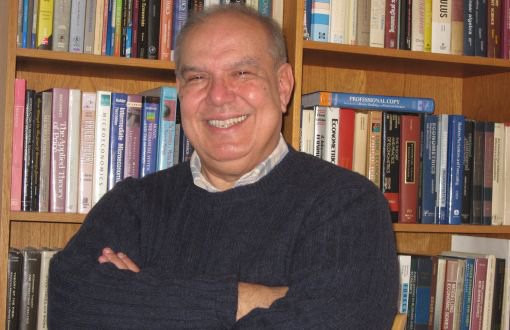Click to read the article in Turkish / Kurdish
The prison sentence of teacher Ayşe Çelik, who was sentenced to 15 months in prison for saying "don't let children die" on the live TV programme Beyaz Şov on the TV channel Kanal D which she joined through a live call and addressed the civilian killings in southeastern Turkey, has been affirmed by the higher court.
Çelik was sentenced to 1 year and 3 months in prison by the Bakırköy 2nd Heavy Criminal Court on April 26, 2017 and was charged with "propagandizing for a terrorist organization" over her comments on live TV. She had said:
"Are you aware of what is happening in Turkey's Southeast? Unborn children, mothers, people get killed here. [...] The things happening here are being reflected very differently in the media. Don't remain silent... See, hear and lend us a hand now.
"Don't let people die, don't let children die, mothers shall not cry. [...]
Upon objection by her lawyers, İstanbul Region Court of Justice 2nd Criminal Chamber re-tried the case and affirmed the prison sentence.
Political message on an apolitical TV show
Speaking to bianet, Çelik's lawyer Mahsuni Karaman argued that the actual purpose of this penalty was give a message for young people.
"On a TV programme that mostly apolitical young people are watching, Ayşe Çelik gave the message "Don't let children die" and she got a big applause from the host of the programme, its guests and the audience. This was a dangerous situation for the political power.
"Not freedom of expression but freedom of thought is being prosecuted"
"Actually, in matters like these, we usually discuss the freedom of expression but in this case, Çelik's freedom of thought and belief has been prosecuted. The violation went beyond the freedom of expression and Çelik's freedom of thought has been violated.
"Because, not her words but her the intention behind her words has rather been questioned. Through entering into a discussion about what she might have meant and aimed for with her expression, her thoughts have been prosecuted and a hypothetical decision has been made on that ground".
"Will be sent to jail after delivery"
Stating that Çelik was also 8-months pregnant, her lawyer Karaman said that they did not expect that the delivery would be in prison and noted that they hoped to be able to postpone the execution of her sentence till after the delivery.
What happened?
A viewer identifying herself as Ayşe Çelik, a teacher, joined the program via phone on January 8 and said, "Children are dying, don't remain silent".
The host of the program, Beyazıt Öztürk, had the audience give an applause for Çelik and said "We are trying our best to make it heard. Your words have been a lesson for us. We will continue to do more. Hopefully your peace wishes will come true as soon as possible".
Following the incident, the Diyarbakır Chief Prosecution started investigating Ayşe Çelik on the charge of "terror propaganda", and the Bakırköy Chief Prosecution launched an investigation into the host Beyazıt Öztürk and Ayşe Çelik over "terror propaganda" as well.
30 people including academics, writers, artists and intellectuals who supported the idea that teacher Çelik's comments and demands did not constitute a crime, had symbolically denounced themselves before İstanbul Bakırköy Court and said "If the words of teacher Çelik constitute a crime, we will be a party to this crime".
On April 27, 2016, a lawsuit was also opened against the supporters, namely: Ahmet Dindar, Ayşe Erzan Silier, Ayşegül (Akış) Devecioğlu, Ayşegül İyidoğan, Bayram Bahri Belen, Dilek Gökçin, Ercan İpekçi, Ergin Cinmen, Ferhat Tunç, Gençay Gürsoy, Gülseren Onanç, Gülşen Denizhan, Gürhan Ertür, Gürkan Develi, Halim Bulutoğlu, İbrahim Akın, İbrahim Sinemillioğlu, Kemal Özgül, Mahmut Konuk, Mehmet Tursun, Mevlüt Ülgen, Murat Çelikkan, Nazmiye Özen, Nergiz Ovacık, Neşe Yaşın, Nil Özsoy Dindar, Orhan Alkaya, Orhan Silier, Oya Baydar, Perihan Pulat, Pınar Önen, Şanar Yurdatapan, Sibel Özbudun Demirer, Süleyman Eryılmaz, Temel Demirer, Türkcan Baykal, Üner Eyüboğlu and Vecdi Sayar.
Trial began on September 23, 2016
The hearing in the trial of Ayşe Çelik, the person in charge of the TV channel and the above mentioned civil disobedients began on September 23, 2016. Çelik in her statement of defence, stood behind her words and stated that demanding peace could not constitute a crime.
On April 26, 2017, Bakırköy 2nd Heavy Criminal Court sentenced Çelik to 1 year and 3 months in prison on the charge of "propagandizing for a terrorist organization". The producer of the TV programme and the civil disobedients were acquitted.
Proceedings against the channel and host of the programmeProceedings by Radio and Television Supreme CouncilIn addition to the legal proceedings, Radio and Television Supreme Council (RTÜK) has also taken action against the host of the programme Beyazıt Öztürk, and the TV channel Kanal D. In the light of the expert report, RTÜK fined the TV channel Kanal D for 215,000 euros (900,000 TL) on the grounds that "Çelik's in her expression 'Don't let children get killed' used the same language as terror organization, and that she aimed at justifying the actions of the terrorist organization by characterizing the military operations against the terrorist organization as 'actions causing the death of innocent civilians'. In the expert report prepared by RTÜK, host Öztürk has also been accused for his attitude at the show that "besides making no attempt to intervene, he had even supported the remarks of Çelik by making the audience give an applause for her. Behaviorist expert reportAs a part of the investigation into Öztürk, the court ordered a behaviorist expert report that analysed the reaction of Öztürk during the live programme to decide whether he should be charged. The behaviorist expert report, observed that "Öztürk had first been surprised, then had tried to understand the guest speaking on telephone, became sad over what he had heard and later on tried to keep the process under control". Ruling in the light of the behaviorist expert report, the court decided not to prosecute against Öztürk on the grounds that "Öztürk did not know that the guest on the phone would go beyond the agreed extent of the conversation, later lost the control of the course of events in the programme and that there was therefore no solid evidence pointing to a deliberate action by Öztürk. |
(EKN/DG)
.jpg)
This publication has been produced within the partnership with Osservatorio Balcani e Caucaso for the European Centre for Press and Media Freedom (ECPMF), co-funded by the European Commission. The contents of this publication are the sole responsibility of media partner IPS Communication Foundation and can in no way be taken to reflect the views of the European Union.







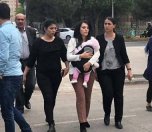
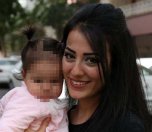
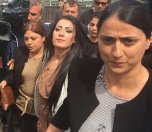
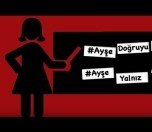

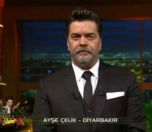

132.jpg)
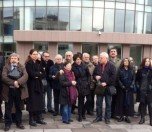

.jpg)


